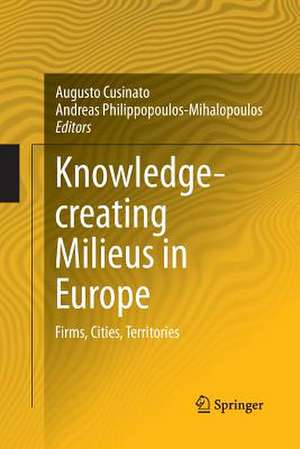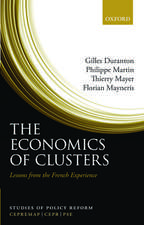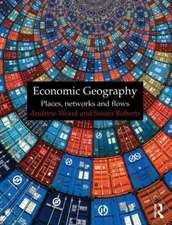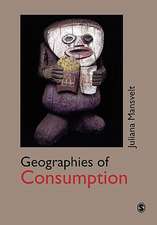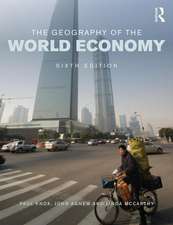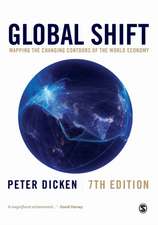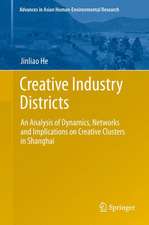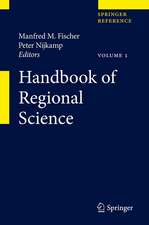Knowledge-creating Milieus in Europe: Firms, Cities, Territories
Editat de Augusto Cusinato, Andreas Philippopoulos-Mihalopoulosen Limba Engleză Paperback – 23 aug 2016
| Toate formatele și edițiile | Preț | Express |
|---|---|---|
| Paperback (1) | 646.75 lei 6-8 săpt. | |
| Springer Berlin, Heidelberg – 23 aug 2016 | 646.75 lei 6-8 săpt. | |
| Hardback (1) | 653.14 lei 6-8 săpt. | |
| Springer Berlin, Heidelberg – 4 sep 2015 | 653.14 lei 6-8 săpt. |
Preț: 646.75 lei
Preț vechi: 760.88 lei
-15% Nou
Puncte Express: 970
Preț estimativ în valută:
123.79€ • 134.51$ • 104.05£
123.79€ • 134.51$ • 104.05£
Carte tipărită la comandă
Livrare economică 21 aprilie-05 mai
Preluare comenzi: 021 569.72.76
Specificații
ISBN-13: 9783662512333
ISBN-10: 3662512335
Pagini: 376
Ilustrații: XLVIII, 376 p. 51 illus., 15 illus. in color.
Dimensiuni: 155 x 235 mm
Greutate: 0.59 kg
Ediția:Softcover reprint of the original 1st ed. 2016
Editura: Springer Berlin, Heidelberg
Colecția Springer
Locul publicării:Berlin, Heidelberg, Germany
ISBN-10: 3662512335
Pagini: 376
Ilustrații: XLVIII, 376 p. 51 illus., 15 illus. in color.
Dimensiuni: 155 x 235 mm
Greutate: 0.59 kg
Ediția:Softcover reprint of the original 1st ed. 2016
Editura: Springer Berlin, Heidelberg
Colecția Springer
Locul publicării:Berlin, Heidelberg, Germany
Cuprins
Introduction.- Part I: A Theoretical Framework.- Part II: Case Studies.- Conclusions.
Notă biografică
Augusto Cusinato is Associate Professor of Urban & Regional Economics at the Iuav University of Venice and Director of the Research Unit “Society, Economy, Territory”. His main research interests are in urban economics, knowledge economics and informal economy. He is co-author of La genèse d’une culture locale d’entreprise au Nord-Est de l’Italie (L’Harmattan) and editor of Economia informale e istituzioni. Processi di reciproco adattamento (L’Harmattan Italia).
Andreas Philippopoulos-Mihalopoulos is Professor of Law & Theory at the University of Westminster and Director of The Westminster International Law & Theory Centre. His research is interdisciplinary and includes phenomenology, autopoiesis, law and literature, geography, art, corporeality, environmental studies and so on. His previous edited volumes Law and the City and Law and Ecology and his monographs Absent Environments and Niklas Luhmann: Law, Justice, Society are published by Routledge.
Andreas Philippopoulos-Mihalopoulos is Professor of Law & Theory at the University of Westminster and Director of The Westminster International Law & Theory Centre. His research is interdisciplinary and includes phenomenology, autopoiesis, law and literature, geography, art, corporeality, environmental studies and so on. His previous edited volumes Law and the City and Law and Ecology and his monographs Absent Environments and Niklas Luhmann: Law, Justice, Society are published by Routledge.
Textul de pe ultima copertă
This book introduces a radically spatialised approach to knowledge creation and innovation. Reflecting on an array of European urban and regional developments, it offers an updated notion of milieu as the conceptual and material space of knowledge and innovation in line with the interpretative turn in social sciences and humanities. In view of the unwillingness of mainstream economics to accommodate such a trend, the authors pursue a broadly understood hermeneutic approach that expands on the triad of knowledge-space-innovation. The book’s main findings are that space is an essential intermediary in the connection between knowledge and innovation, and that a renewed notion of milieu provides the knowledge-space-innovation triad with both an analytical basis and operational power. It also offers fresh insights into the significance and potential of the knowledge economy. A number of empirical European case studies on various scales (organisations, cities and territories) support the findings and suggest new policy directions.
Caracteristici
Provides fresh insights on the triad of knowledge-space-innovation from a hermeneutical viewpoint Offers a notion of milieus that reflects knowledge-generation processes on various socio-spatial scales Six illustrative case studies examine European organisations, cities and regions as knowledge-generating milieus
